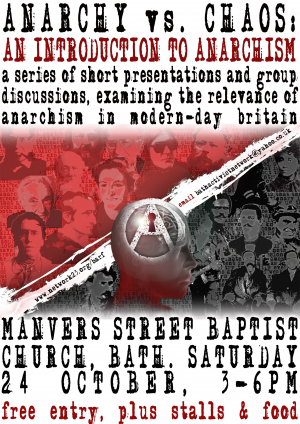I SPEND A lot of my time talking to ordinary people, whether it is on demos, walking the dog or when just out and about around town. What has really pissed me off is that most people don’t give a shit about anyone else. It is all me me me, with no understanding or empathy towards other people. I guess it is just the society we have been brought up in, capitalism has definitely made people less responsible for their own actions and has created a blame culture, which has led to most people being whining little brats who don’t think about others’ suffering, and if they do have a moment of clarity it is quickly pushed aside for a shiny new i-toy of some sort. The N.H.S. and the benefit system are in tatters, people are being forced into Victorian-style workhouse labour, others are being forced onto the streets, the vulnerable in society are being abused and some people just say ‘well I’m able to survive so why can’t others?’ ARGH! What they don’t seem to understand is that if we don’t stick up for each other then it will be us next. We would rather aspire to be in the minority of rich, controlling bastards than look out for our neighbours. Lets make no mistake; those at the top are bastards. They were born into wealth and are unlikely to let too many share what they have. They sell you the dream of wealth and power, with no intention to let you have any. They make you compete against those who would otherwise help you and share their knowledge and skills with you.
Instead of getting angry and jealous of those around you, get angry and those who have put us all in this fuckstick of a situation. Get to know your neighbours, maybe an elderly neighbour could do with some company, or there might be a single parent that might need some time off. If you have skills in D.I.Y. or cooking, you can offer your skills to others in return for theirs. And from creating this community you will develop more empathy for those around you. Now doesn’t that sound much better than watching the prejudice and hateful bullshit on the news? Keep your hate for those that deserve it… and that really isn’t those who are worse off than you.





